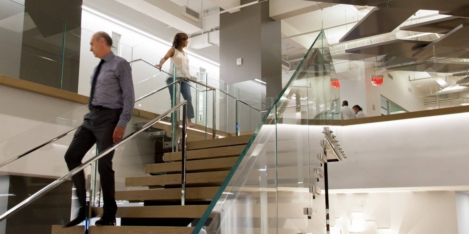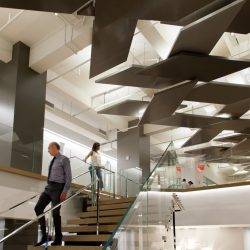May 18, 2018
Employees’ overwhelming view is they are being held back from developing their career

Half (49 percent) of UK workers believe their current job offers little to no chance for career progression and out of 1,000 UK workers asked about the state of their career progression including the prospects for advancement, not one felt they had the right level of support from managers. The survey by Qualtrics claims that just 7 percent believe there is a great deal of opportunity to progress their career in their organisation. It’s a marked difference from October 2017, when the number of employees saying they had a significant opportunity for career progression was 17 percent. The research suggests the pessimistic outlook could be down to a lack of acknowledgment and support at work. Of those claiming to have little or no opportunities for career progression, the data found that 71 percent are given little to no change to trying out new things that interest them, all of them (100 percent) say they don’t receive the right level of support from managers and 49 percent rarely receive consistent acknowledgement for doing good work.













 More than a quarter of managers (27 percent) in British companies would likely accept a salary cut to work for a company that has a clear purpose beyond profit a new report claims. A third (32 percent) would actually consider leaving their job if a greater purpose was unclear, while more than half (53 percent) would if their company’s values and purpose didn’t align with their own. The YouGov survey, commissioned by Danone UK, highlights the importance of having a defined company purpose that marries commercial success with social progress. The findings support a new report by not-for-profit think tank Tomorrow’s Company and Danone UK, that explores the importance of having a purpose beyond profit in helping companies to prosper in the face of workplace challenges created by an uncertain world.
More than a quarter of managers (27 percent) in British companies would likely accept a salary cut to work for a company that has a clear purpose beyond profit a new report claims. A third (32 percent) would actually consider leaving their job if a greater purpose was unclear, while more than half (53 percent) would if their company’s values and purpose didn’t align with their own. The YouGov survey, commissioned by Danone UK, highlights the importance of having a defined company purpose that marries commercial success with social progress. The findings support a new report by not-for-profit think tank Tomorrow’s Company and Danone UK, that explores the importance of having a purpose beyond profit in helping companies to prosper in the face of workplace challenges created by an uncertain world. 



















May 30, 2018
Australia is leading the world in the adoption of activity based working
by Max Luff • Comment, Flexible working, Workplace design
(more…)